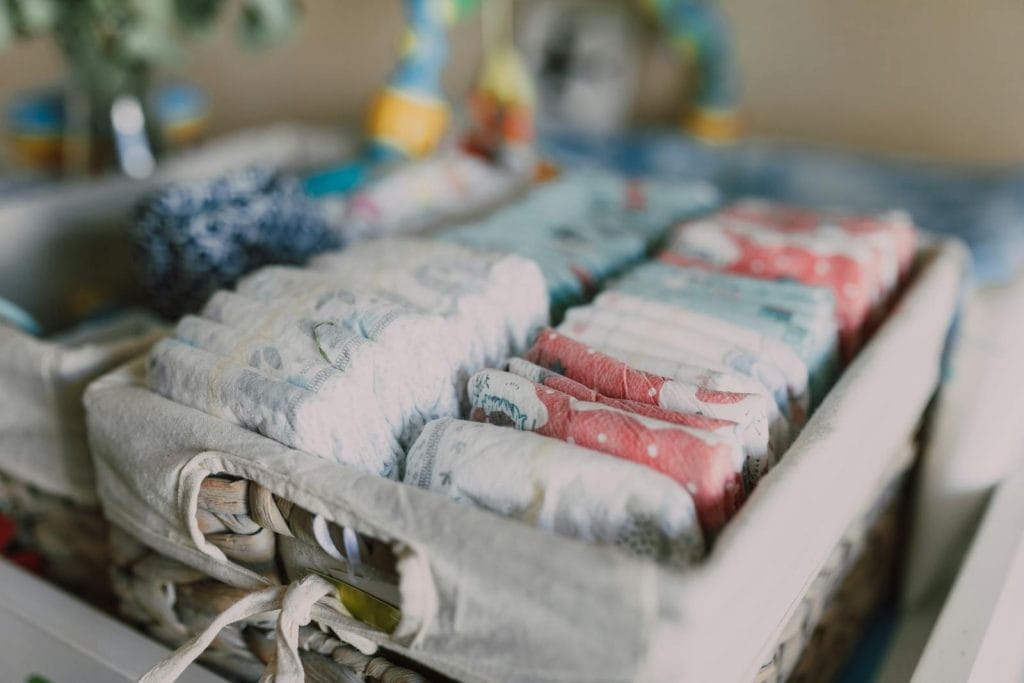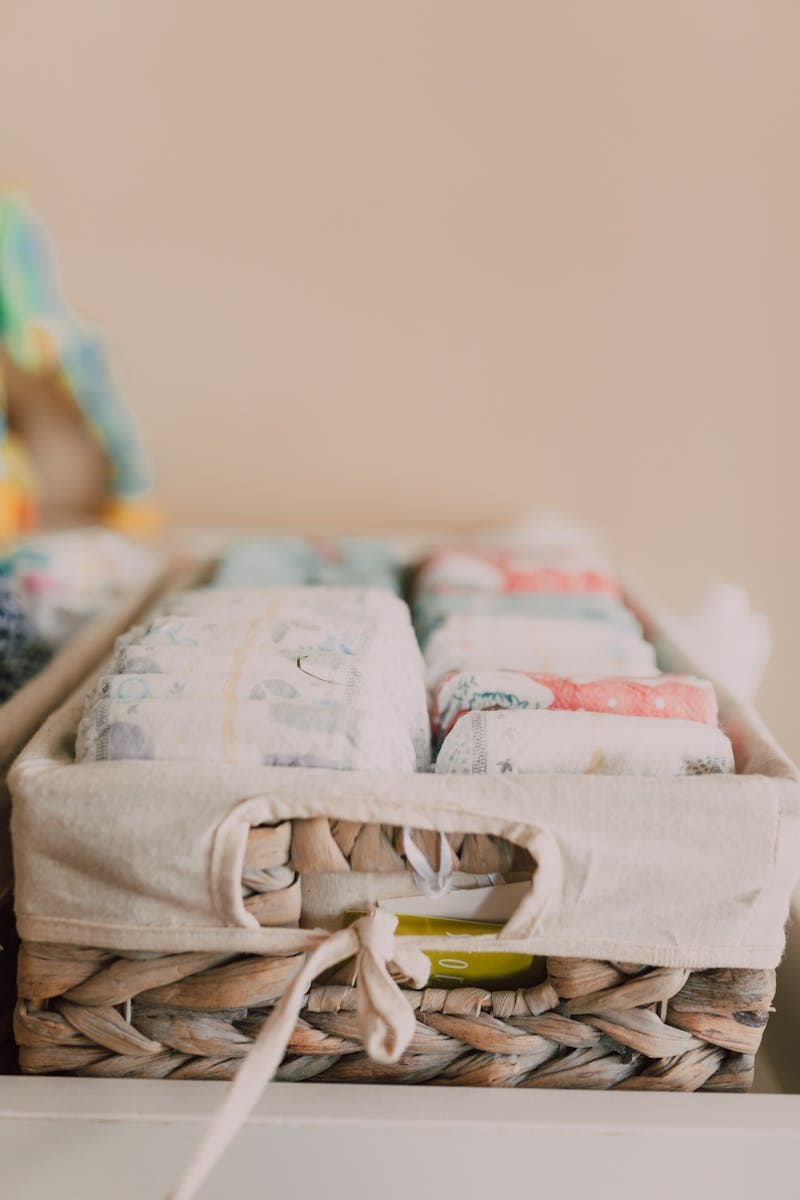In today’s world, where environmental consciousness is rising, parents are increasingly turning to organic diapers as a sustainable and health-conscious choice for their little ones. This comprehensive guide will explore everything you need to know about organic diapers, from their benefits to how to choose the right ones for your baby. Let’s dive into the world of eco-friendly diapering and discover why organic diapers are becoming the go-to option for environmentally aware parents.
What Are Organic Diapers?
Organic diapers are specially designed baby care products that prioritize using natural, organic materials and eco-friendly manufacturing processes. Unlike conventional diapers, which often contain synthetic materials and chemicals, organic diapers are made from renewable resources and are free from harmful substances. These diapers aim to provide a safe, comfortable, and environmentally responsible option for parents who want the best for their babies and the planet.
Materials Used in Organic Diapers
Organic diapers typically incorporate a range of natural and sustainable materials, including:
- Organic cotton: Soft, breathable, and free from pesticides and chemical fertilizers
- Bamboo: Highly absorbent, naturally antimicrobial, and fast-growing
- Wood pulp: Sourced from sustainably managed forests and biodegradable
- Plant-based plastics: Derived from renewable resources like corn or sugarcane
- Natural oils: Used as moisture barriers instead of petroleum-based alternatives
Comparison with Conventional Diapers
To understand the significance of organic diapers, it’s essential to compare them with their conventional counterparts:
| Feature | Organic Diapers | Conventional Diapers |
| Materials | Natural, renewable resources | Synthetic materials, petroleum-based plastics |
| Chemical Use | Minimal to none | Often contain chlorine, phthalates, and other chemicals |
| Environmental Impact | Lower carbon footprint, often biodegradable | Higher carbon footprint, non-biodegradable |
| Skin Sensitivity | Hypoallergenic, suitable for sensitive skin | May cause irritation or allergic reactions |
| Cost | Generally higher upfront cost | Usually less expensive |
| Availability | Increasing but less widely available | Widely available in most stores |
Benefits of Choosing Organic Diapers
The decision to use organic diapers has numerous advantages for both your baby and the environment. Let’s explore these benefits in detail.
Environmental Advantages
- Reduced carbon footprint: Organic diapers are often made using sustainable manufacturing processes and renewable energy sources, resulting in a lower overall carbon footprint than conventional diapers.
- Biodegradability and composting options: Many organic diapers are designed to break down more easily in landfills or can be composted, reducing long-term environmental impact.
- Conservation of resources: By using natural, renewable materials, organic diapers help conserve non-renewable resources like petroleum, which is commonly used in conventional diaper production.
- Water conservation: Organic cotton cultivation and other natural materials typically require less water than conventional farming methods.
- Reduced pollution: Organic farming practices used to grow materials for these diapers minimize the release of harmful pesticides and fertilizers into the environment.
Health Benefits for Babies
- Reduced exposure to harmful chemicals: Organic diapers are free from chlorine, phthalates, and other potentially harmful substances often found in conventional diapers.
- Hypoallergenic properties: The natural materials used in organic diapers are less likely to cause allergic reactions or skin irritations, making them ideal for babies with sensitive skin.
- Breathability and skin-friendly materials: Organic cotton and bamboo allow for better air circulation, reducing the risk of diaper rash and keeping your baby’s skin healthier.
- Temperature regulation: Natural fibers help maintain a more consistent temperature, preventing overheating and excessive sweating.
- Reduced risk of long-term health issues: By minimizing exposure to chemicals during the crucial early years of development, organic diapers may contribute to better long-term health outcomes.
Long-term Impact on Sustainability
- Supporting eco-friendly industries: Choosing organic diapers encourages growth in sustainable agriculture and manufacturing sectors.
- Encouraging innovation in sustainable products: Increased demand for organic diapers drives research and development of new eco-friendly materials and production methods.
- Raising awareness: Using organic diapers can spark conversations about sustainability, influencing others to make more environmentally conscious choices.
- Reducing landfill waste: The biodegradable nature of many organic diapers helps decrease the volume of non-decomposable waste in landfills.
- Promoting circular economy principles: Some organic diaper brands are exploring ways to create closed-loop systems where used diapers are recycled into new products.
Types of Organic Diapers

When it comes to organic diapers, parents have several options to choose from. Each type has its own set of advantages and considerations. Let’s explore the main categories of organic diapers available in the market.
Disposable Organic Diapers
Disposable organic diapers offer the convenience of single-use products while incorporating eco-friendly materials and manufacturing processes.
Brands and options:
- Bambo Nature
- Eco by Naty
- Seventh Generation
- Earth’s Best
- Andy Pandy
Pros:
- Convenient for on-the-go use
- No washing required
- Widely available in stores and online
- Suitable for daycare and travel
Cons:
- Higher cost per diaper compared to conventional disposables
- Still contribute to landfill waste, albeit less than traditional disposables
- It may not be 100% biodegradable
Cloth Organic Diapers
Cloth organic diapers are reusable options made from natural, organic materials. They come in various styles and designs to suit different preferences.
Materials and styles:
- Organic cotton prefolds
- Bamboo all-in-ones
- Hemp fitted diapers
- Organic cotton/bamboo hybrid systems
Washing and maintenance:
- Rinse soiled diapers immediately after use
- Store in a dry pail or wet bag until laundry day
- Wash every 2-3 days in hot water with a cloth-diaper-safe detergent
- Avoid fabric softeners and use bleach
- Line dry or tumble dry on low heat
Cost-effectiveness:
While the initial investment in cloth diapers may be higher, they can lead to significant savings over time, especially if used for multiple children.
Hybrid Organic Diapers
Hybrid organic diapers combine disposable and cloth systems elements, offering a flexible solution for parents.
How they work:
- Reusable outer shell or cover
- Disposable or washable inserts
- Mix and match options based on needs
Combining the best of both worlds:
- Convenience of disposables for outings
- Cost-effectiveness of cloth for home use
- Reduced environmental impact compared to full disposable systems
Choosing the Right Organic Diaper for Your Baby
Selecting the perfect organic diaper for your little one involves considering several factors to ensure comfort, effectiveness, and alignment with your values.
Factors to Consider
- Size and fit: Proper sizing prevents leaks and ensures comfort. Most brands offer size charts based on weight and age.
- Absorbency levels: Consider your baby’s needs, especially for overnight use or heavy wetters.
- Eco-certifications to look for:
- Global Organic Textile Standard (GOTS)
- OEKO-TEX Standard 100
- Forest Stewardship Council (FSC) certification
- Biodegradable Products Institute (BPI) certification
- Diapering style preferences: Consider whether you prefer all-in-one systems, prefolds with covers, or hybrid options.
- Budget constraints: Balance the cost with the environmental and health benefits.
Reading Labels: What to Look For
When shopping for organic diapers, it’s essential to carefully read product labels to ensure you’re getting a truly eco-friendly and safe option.
- Organic content percentage: Look for diapers with a high percentage of organic materials, ideally 70% or more.
- Material breakdown: Check the list of materials used in the diaper’s construction, including the core, top sheet, and outer layer.
- Manufacturing processes: Some brands disclose information about their production methods, such as chlorine-free bleaching or water-conserving techniques.
- Absence of harmful chemicals: Ensure the label states the diaper is free from phthalates, fragrances, and other potentially irritating substances.
- Transparency: Choose brands that are open about their sourcing and manufacturing practices.
Cost Comparison: Organic vs. Conventional Diapers

While organic diapers often come with a higher price tag, it’s important to consider the full picture when evaluating costs.
Initial investment:
- Organic disposables: $0.30 – $0.80 per diaper
- Conventional disposables: $0.20 – $0.40 per diaper
- Cloth organic diapers: $300 – $800 for a full set
Long-term savings:
- Cloth organic diapers can save up to $2000 over the diapering years, especially if used for multiple children
- Hybrid systems offer a middle ground in terms of cost
Environmental cost considerations:
- Reduced landfill waste
- Lower carbon footprint
- Conservation of resources
While the upfront cost of organic diapers may be higher, many parents find the long-term benefits to their baby’s health and the environment outweigh the additional expense.
How to Use and Care for Organic Diapers
Proper use and care of organic diapers can extend their lifespan and maximize their eco-friendly benefits.
Disposable Organic Diapers
- Proper disposal methods:
- Remove any solid waste and flush it down the toilet
- Roll up the diaper and secure it with its tabs
- Dispose of in a designated diaper pail or trash bin
- Composting options:
- Some brands offer compostable diapers that can be processed in industrial composting facilities
- Check local regulations and available services for diaper composting
Cloth Organic Diapers
- Washing routines:
- Pre-wash in cold water to remove surface dirt
- Main wash in hot water with cloth-diaper-safe detergent
- Extra rinse to ensure all detergent is removed
- Drying and storage tips:
- Line dry when possible to save energy and extend diaper life
- If using a dryer, use low heat settings
- Store clean diapers in a dry, well-ventilated area
- Extending lifespan:
- Rotate your diaper stash to distribute wear evenly
- Use diaper-safe rash creams to avoid buildup
- Strip diapers every few months to remove mineral deposits
Common Myths About Organic Diapers Debunked
Let’s address some common misconceptions about organic diapers:
- Myth: Organic diapers are less absorbent than conventional ones.
Fact: Many organic diapers use highly absorbent natural materials like bamboo that can outperform synthetic options. - Myth: Cloth-organic diapers are unsanitary.
Fact: Proper washing routines ensure cloth diapers are as clean and safe as disposables. - Myth: Organic diapers are too expensive for most families.
Fact: While initially pricier, the long-term cost savings and health benefits can make them a worthwhile investment. - Myth: All “natural” diapers are organic.
Fact: Look for certified organic labels, as “natural” is not regulated. - Myth: Organic diapers don’t perform as well as conventional ones.
Fact: Many organic diaper brands offer comparable or superior performance to traditional options.
The Future of Organic Diapers
The organic diaper industry is continuously evolving, with exciting developments on the horizon:
- Emerging technologies:
- Biodegradable super-absorbent polymers
- Smart sensors for wetness detection
- Improved plant-based waterproofing materials
- Innovations in sustainable materials:
- Exploration of new fibers like hemp and nettle
- Development of fully compostable disposable options
- Advanced recycling techniques for diaper components
- Market trends and predictions:
- Increasing mainstream adoption of organic diapers
- Growth in subscription-based diaper services
- Integration of organic diapers into circular economy models
As consumer demand for eco-friendly baby products continues to rise, we expect further innovations and improvements in the organic diaper industry. This growth will likely lead to more affordable options and increased availability, making organic diapers accessible to more families.
Making the Switch: Transitioning to Organic Diapers
If you’re considering making the switch to organic diapers, here’s a step-by-step guide to help you transition smoothly:
- Research and select: Explore different organic diaper brands and types to find the best fit for your family’s needs and values.
- Start small: Purchase a small pack or trial kit to test the fit and performance before committing to a larger quantity.
- Gradual transition: Introduce organic diapers alongside your current diapers, gradually increasing their use as you become more comfortable.
- Monitor for reactions: Watch for skin reactions or fit issues, and be prepared to try different brands if needed.
- Adjust your routine: If switching to cloth diapers, establish a washing and drying routine that works for your household.
Overcoming challenges:
- Dealing with potential leaks: Ensure proper fit and consider using booster pads for heavy wetters.
- Managing costs: Look for sales, buy in bulk, or consider a diaper subscription service for better value.
- Handling on-the-go changes: Prepare a diaper bag with all necessary supplies, including wet bags for cloth diapers.
Tips for success:
- Join online communities or local groups for support and advice from experienced organic diaper users.
- Be patient and allow time for adjustment, both for you and your baby.
- Remember the long-term benefits for your baby’s health and the environment.
Organic Diapers and Sensitive Skin: A Perfect Match
For babies with sensitive skin, eczema, or allergies, organic diapers can be a game-changer. The natural, chemical-free materials used in organic diapers are less likely to cause irritation or allergic reactions.
How organic diapers benefit babies with eczema or allergies:
- Reduced exposure to potential irritants and allergens
- Breathable materials that help prevent moisture build-up
- Softer textures that are gentler on delicate skin
- Absence of fragrances and harsh chemicals that can trigger reactions
Testimonials from parents:
“Switching to organic cloth diapers was our best decision for our daughter’s eczema. Her skin cleared up within weeks, and we haven’t looked back!” – Sarah M., mother of a 14-month-old
“After trying countless diaper brands, organic disposables were the only ones that didn’t cause a rash on my son’s sensitive skin. They’re worth every penny.” – Michael T., father of a 6-month-old
The Social Impact of Choosing Organic Diapers
The choice to use organic diapers extends beyond personal benefits, contributing to broader social and ethical considerations.
Supporting ethical manufacturing:
- Fair labor practices in organic cotton farming
- Safer working conditions in production facilities
- Transparency in supply chains
Empowering communities through sustainable choices:
- Supporting small-scale organic farmers
- Encouraging local manufacturing of eco-friendly products
- Raising awareness about environmental issues in communities
By choosing organic diapers, parents are making healthier choices for their babies and contributing to a more sustainable and equitable global economy.
What Social Media Says About Organic Diapers
Social media platforms are buzzing with discussions about organic diapers. Here’s a snapshot of what people are saying:
YouTube on Organic Diapers
Reddit on Organic Diapers
Quora on Organic Diapers

What are the most environmentally friendly infant diaper options?

What are some eco-friendly disposable diaper brands?
FAQs About Organic Diapers
Here are answers to some frequently asked questions about organic diapers:
Q: Are organic diapers better for the environment?
A: Organic diapers generally have a lower environmental impact due to their use of sustainable materials and eco-friendly production processes. Many are biodegradable or compostable, reducing landfill waste.
Q: How do I know if a diaper is truly organic?
A: Look for certified organic labels such as GOTS or OEKO-TEX. Read ingredient lists carefully and research the brand’s sustainability practices.
Q: Can organic diapers prevent diaper rash?
A: While no diaper can completely prevent diaper rash, organic diapers may reduce the risk due to their breathable, chemical-free materials.
Q: Are organic diapers as absorbent as regular diapers?
A: Many organic diapers are just as absorbent as conventional ones, using materials like bamboo that have excellent moisture-wicking properties.
Q: How much more expensive are organic diapers?
A: Organic diapers can cost 20-50% more than conventional diapers, but prices are becoming more competitive as demand increases.
Conclusion: Embracing Organic Diapers for a Greener Future
As we’ve explored throughout this guide, organic diapers offer many benefits for babies, parents, and the planet. The advantages of choosing organic are clear, from reducing exposure to harmful chemicals to minimizing environmental impact. While the initial cost may be higher, many parents find the long-term benefits outweigh this.
By switching to organic diapers, you’re not just making a choice for your baby’s health and comfort—you’re also contributing to a more sustainable future. As the organic diaper industry continues to grow and innovate, we can look forward to even more eco-friendly options that make it easier for parents to align their values with their diapering choices.
Whether you opt for disposable organic diapers, embrace cloth diapering, or find a balance with hybrid systems, every step towards more sustainable diapering practices makes a difference. By choosing organic diapers, you join a community of conscious parents working towards a healthier planet for the next generation.
Remember, every diaper change is an opportunity to make a positive impact. So why not make it organic?

Leave a Reply